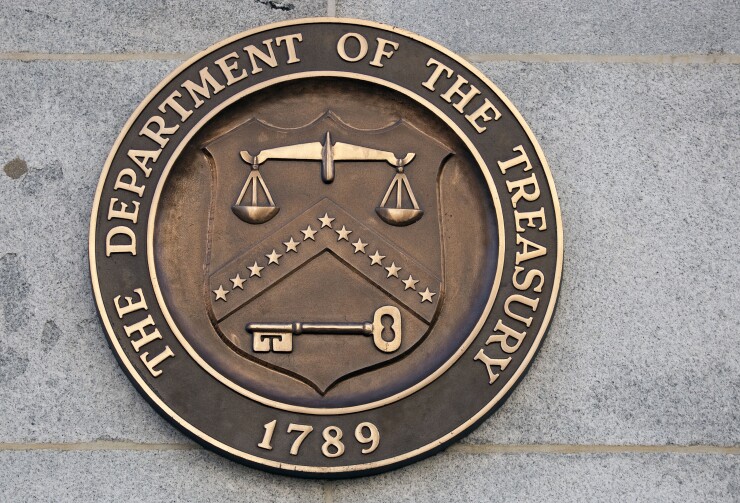Arizona’s governor Doug Ducey has doubled down on his suit against the Department of the Treasury following its threats to clawback funds against the state for using pandemic relief funds for reopening schools and undermining federal mask mandates.
Gov. Ducey’s office urged a federal court in Arizona to deny Treasury’s bid to dismiss the suit which followed the federal agency’s letter to the state in Jan. 2021.
The Arizona State Treasurer’s office said the matter doesn’t affect it, despite some

In opposing Arizona’s complaint, Treasury said the state lacks standing to bring the suit.
“These arguments fall,” Ducey’s office told the court. The state justified its suit by telling the court that Arizona is a “directly regulated party” and thus stands to bring a suit against Treasury’s warnings it would clawback ARPA funds.
Governor Ducey’s office is claiming it stated valid claims for relief and that the Treasury has no statutory authority to implement the Undermine Restriction that was included in the agency’s
However this case is settled, it could have wide ranging impacts as ARPA and Treasury’s Final Rule has generated significant legal backlash.
“On the merits, Governor Ducey agrees with Treasury on one thing: the Governor’s claims can (and should) be decided as a matter of law,” the court documents said. “Those claims must be resolved in the Governor’s favor,” Ducey’s office argued.
A federal agency must have statutory authority for the regulations it issues and a regulation that is contrary to a statute is void, Ducey’s office said.
“Here, Treasury’s rulemaking authority under ARPA did not extend to the Undermine Restriction in the Final Rule, because that Restriction cannot be reconciled with the specific guidance that Congress provided on the permissible (and impermissible) uses of SLFRF (state and local recovery funds) monies,” Ducey’s office argued.
Ducey’s office also argued that Congress set out four separate categories of permissible uses of SLFRF funds and two restrictions. They’re homing in on the provision that SLFRF monies may be used “to respond to the public health emergency with respect to the Coronavirus Disease 2019 (COVID-19) or its negative economic impacts.”
But Arizona is also arguing that the Undermine Restriction in the Final Rule upends that statutory framework and that creating a program that falls within one of the four permissible categories of use of SLFRF monies that do not implicate either of the two statutory restrictions is no longer satisfactory in the eyes of Treasury, given a state must also design an otherwise-authorized program in such a way that does not undercut efforts to control the spread of COVID-19.
“Treasury seeks to elevate one permissible use of SLFRF monies (responding to the public health emergency) over the other permissible uses described by Congress,” the court documents said.
This isn’t the only case that Arizona has pending. In addition to a plethora of mostly red states such as Ohio and Kentucky, Arizona is challenging a provision in ARPA that bars states from using federal relief funds to offset tax cuts in State of Arizona v. Janey Yellen, et al.
In addition to accusing Treasury of “exceeding the authority granted to it by Congress” the court documents said in Ducey v. Yellen, et al., the state filed a motion to transfer to consolidate the two cases. On Friday, the motion was denied.
“Overall, the Court finds that the similarities between the Arizona and Ducey matter do not warrant granting Defendants’ Motion to Transfer,” the court documents said.
Governor Ducey’s office did not immediately respond to requests for comment.





